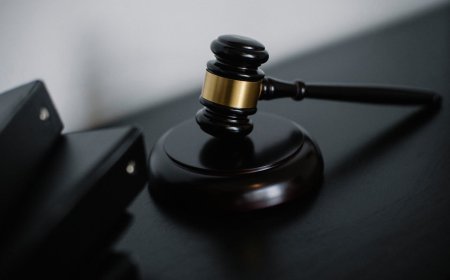Understanding the Colonoscopy Procedure: What to Expect in Singapor


The colonoscopy procedure is a critical diagnostic and preventive healthcare measure for detecting and addressing colorectal conditions. It is commonly recommended for individuals with digestive issues or those over 50 years old as part of routine health screening. In Singapore, access to advanced medical facilities ensures a safe and efficient experience for patients undergoing this procedure.
In this guide, we will explore what the colonoscopy procedure involves, how to prepare, and what to expect during and after the process. Understanding these aspects can help patients feel more confident and informed about their healthcare decisions.
What is a Colonoscopy?
A colonoscopy is a medical procedure that allows doctors to examine the inner lining of the colon (large intestine) and rectum. Using a long, flexible tube with a camera called a colonoscope, healthcare professionals can detect abnormalities such as polyps, inflammation, or cancer.
The colonoscopy procedure is often performed to investigate symptoms like chronic diarrhea, rectal bleeding, or unexplained abdominal pain. It is also essential for colorectal cancer screening, particularly in regions like Singapore, where early detection is prioritized.
Why is the Colonoscopy Procedure Important?
-
Early Detection of Colorectal Cancer
Colorectal cancer is among the most common cancers worldwide. The colonoscopy procedure helps identify precancerous polyps or early-stage cancer, increasing the chances of successful treatment. -
Diagnosis of Digestive Disorders
Conditions like Crohn’s disease, ulcerative colitis, and diverticulitis can be diagnosed through a colonoscopy. -
Preventive Care
Removing polyps during a colonoscopy can prevent them from becoming cancerous, making the procedure both diagnostic and therapeutic.
How to Prepare for a Colonoscopy Procedure
Proper preparation is crucial for ensuring accurate results during a colonoscopy. Here’s what patients in Singapore should know:
-
Dietary Adjustments
A low-fiber diet is often recommended a few days before the procedure. Avoid foods like nuts, seeds, and whole grains. -
Bowel Preparation
Patients must take prescribed laxatives to empty the colon completely. Clear liquids like water, broth, and electrolyte drinks are usually allowed on the day before the procedure. -
Medication Review
Inform your doctor about any medications you are taking, as some may need to be paused or adjusted before the procedure.
What Happens During the Colonoscopy Procedure?
The colonoscopy procedure typically lasts 30-60 minutes and involves the following steps:
-
Sedation
Patients are given a sedative to ensure comfort during the procedure. -
Insertion of the Colonoscope
The doctor inserts the colonoscope into the rectum and carefully guides it through the colon. The camera provides live images on a monitor. -
Inspection and Treatment
Any abnormalities, such as polyps, can be removed or biopsied during the procedure.
Patients may feel mild cramping or pressure, but the sedation minimizes discomfort.
What to Expect After the Colonoscopy Procedure
-
Recovery
Patients are monitored for a short period after the procedure until the sedative wears off. It is advisable to arrange for someone to drive you home. -
Results
The doctor will discuss findings immediately or schedule a follow-up appointment. Biopsy results, if taken, may take a few days. -
Post-Procedure Care
Mild bloating or gas is common but resolves quickly. Most patients can resume their normal diet and activities within 24 hours.
Are There Any Risks Associated with the Colonoscopy Procedure?
While the colonoscopy procedure is generally safe, minor risks include:
-
Bleeding at the site where polyps were removed
-
Perforation of the colon (rare)
-
Adverse reactions to sedation
Patients in Singapore benefit from highly skilled medical professionals and state-of-the-art facilities, which significantly reduce these risks.
When Should You Schedule a Colonoscopy?
Doctors recommend scheduling a colonoscopy if you:
-
Are 50 years or older
-
Have a family history of colorectal cancer
-
Experience persistent gastrointestinal symptoms like blood in the stool, unexplained weight loss, or chronic abdominal pain
In Singapore, public hospitals and private clinics offer colonoscopy services. Discuss your symptoms and risk factors with your healthcare provider to determine the right timing.
Costs of a Colonoscopy Procedure in Singapore
The cost of the colonoscopy procedure varies based on whether it is performed at a public or private healthcare facility. Subsidies are available for Singapore citizens at public hospitals under government schemes. For private clinics, prices may be higher but often include shorter waiting times.
Conclusion
The colonoscopy procedure is a vital tool for maintaining digestive health and preventing serious conditions like colorectal cancer. By understanding what to expect and how to prepare, individuals in Singapore can approach the procedure with confidence and peace of mind. Always consult a trusted healthcare provider for personalized advice and support.
What's Your Reaction?
































































